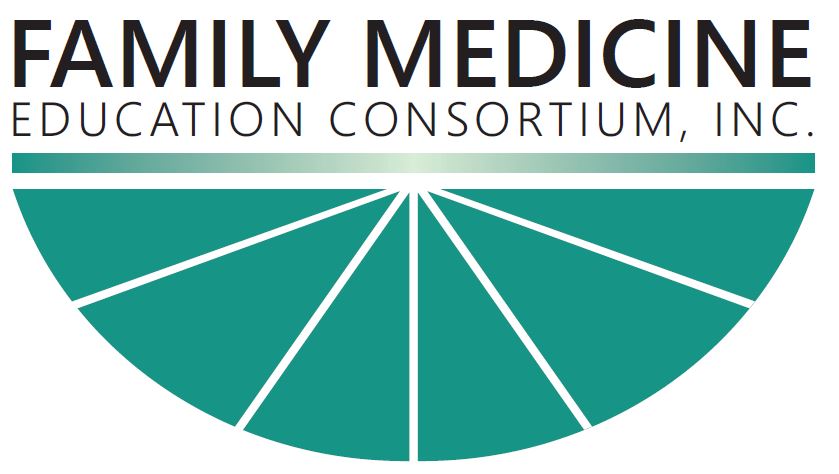Thank you to everyone who presented and attended our first Annual Meeting Sampler Series from the 2022 FMEC Annual Meeting!The sessions below are some of the many highly-rated seminars that were presented in Arlington, VA in September 2022. Like the FMEC meeting, they cover topics ranging from patient care to medical education to leadership and advocacy. The presenters graciously agreed to present them again virtually, so everyone can benefit. Registration was free but required in order to receive the Zoom participation link. Please click the links below to view the recordings and slides for each webinar. Thank you again to all that participated! Past Webinars Webinar 1: January 24, 2023 Are you interested in health policy and advocacy but not sure how to integrate it into your future? Join us for a conversation with family physicians who have carved careers in clinical medicine, academics, health policy, public health, and health services research. Reflecting on their experiences, these panelists of early career physicians will provide insight to navigating student and resident opportunities, health policy fellowships, and prospective job positions. Webinar 2: February 1, 2023 There are over 200 brands of oral contraceptives. How do you decide which one to choose? And how do you make changes for patients with side effects? In this seminar, we learn the hormones that are included in oral contraceptives, what their actions are, benefits and side effects. Learners will evaluate oral contraceptives by the type and dose of hormones present and use this knowledge to pair an oral contraceptive to individual patients. We will discuss individual cases giving attendees a chance to apply what they have learned. Webinar 3: February 15, 2023 Advancing leadership skills is an inherent part of residency training: senior learners lead junior learners. Despite these expectations, few residencies have an explicit leadership curriculum and most leadership teaching occurs on an informal basis. While a familiarity with a variety of healthcare settings, working with undifferentiated groups, comfort with the complex and an investment in relationships are all hallmarks of family medicine, training has not focused on translating these skills to organizational leadership. Purposeful incorporation of leadership development in the residency environment would benefit family medicine and the healthcare organizations in need of a more comprehensive approach to leadership. Webinar 4: Tuesday, March 7, 2023 Most medical students, residents, and even attending physicians have had no formal training surrounding the often misunderstood against medical advice (AMA) hospital discharge. There are no guidelines for how to address these complex patient encounters. Background regarding the definition and what the literature notes about the characteristics of AMA discharges will be reviewed. The five most common myths surrounding the AMA hospital discharges will be discussed. A system of AMA universal precautions will be promoted to systematically address these challenging scenarios. This session will promote a formal system for educating family medicine residents on this topic. Webinar 5: Tuesday, March 21, 2023 Webinar 6: Tuesday, April 4, 2023 During this seminar, members and contributors to the ACGME Osteopathic Recognition Milestones 2.0 Work Group will provide an introduction to Milestones 2.0. Topics covered include: changes from milestones 1.0 to 2.0, new language of the 7 osteopathic milestone sub-competencies, the new supplemental guide and how to implement the new milestones into family medicine residency programs that have or are seeking Osteopathic Recognition. Laura Edgar, Vice president of Milestone Development for ACGME, will also review resources provided by ACGME for the milestones for residency programs. Webinar 7: Tuesday, April 18, 2023 Webinar 8: Tuesday, May 9, 2023 This presentation will provide participants with the most updated recommendations for screening and prevention in adolescents. It will include a review of updates on HEADSSSS screening (with a focus on the S’s), immunization recommendations, and USPSTF recommendations. It will also address recommendations specific to LGBTQ adolescent patients, where recommendations may differ from generalized recommendations for adolescent patients. Webinar 9: Tuesday, May 23, 2023 Diagnostic error in medicine affects approximately 12 million patients each year. This session will cover key concepts in clinical reasoning, how we make errors, and methods to address these challenges. We will define and discuss problem representations, illness scripts, dual-process theory, cognitive biases and other major topics in this field. As a group, we will reason through a clinical case, focusing on the diagnostic process, and perform a cognitive autopsy afterwards. Additionally, this session will overview a curriculum design for residency programs to teach clinical reasoning to residents and medical students. Webinar 10: Thursday, June 8, 2023 Substantial health disparities exist in the diagnosis, treatment and long-term management of dermatological conditions in children. This can be partly attributed to training deficits in medical school and residency. This session will review the evaluation, diagnosis, and treatment of common pediatric rashes using only photos with darker skin tones as defined by the Fitzpatrick Scale. Improved diagnostic skills will be achieved through review of existing health disparities literature, interactive patient cases in small groups, and use of the VisualDx mobile application. Webinar 11: Thursday, June 15, 2023 The ACGME requires that training programs incorporate professionalism in a variety of ways. You know it when you see it, so why is it so challenging to teach? This session will describe an interactive game show didactic involving faculty and residents. Participants will have the opportunity to discuss challenges and successes of teaching professionalism. |
